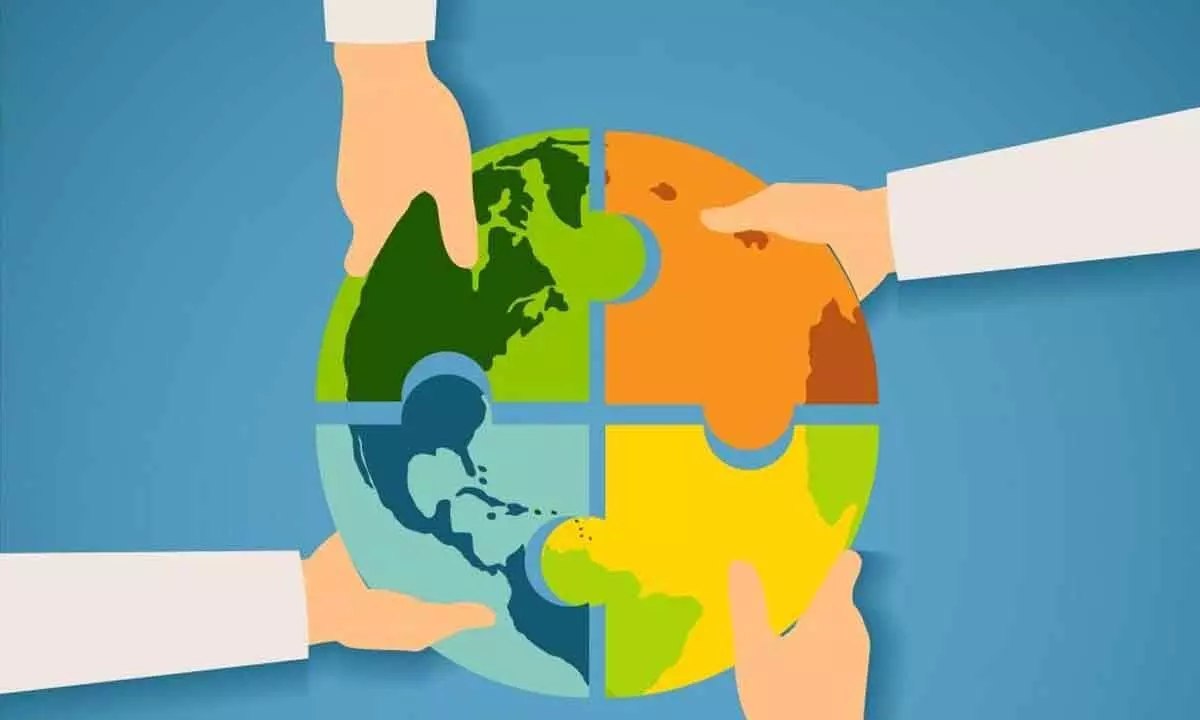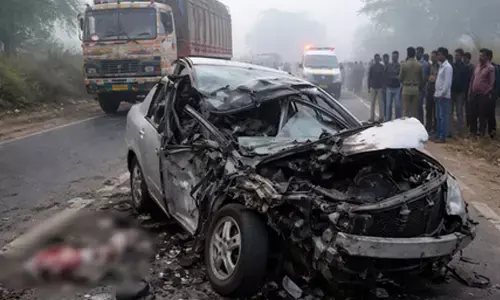COP27: Only together can we win

It’s a nightmare moment for climate change activists like me as we head for the next conference of parties (COP27) — this time being organised in the coastal city of Sharm el-Sheikh in Egypt.
It's a nightmare moment for climate change activists like me as we head for the next conference of parties (COP27) — this time being organised in the coastal city of Sharm el-Sheikh in Egypt.
The rich world, which has to act decisively to cut fossil fuel emissions and to finance transitions in the rest of the world, is going through its own economic crisis. Energy prices are high; this winter, it will be tough for households to stay warm. Climate change sceptics and the fossil fuel industry are close to taking a victory lap as they whip up public opinion against the needed energy transition — out of fossil fuel and into cleaner sources.
The rich countries are already moving towards reinvestment in fossil fuels, although they say this is temporary and that they will go back to meeting their commitments to decarbonise. It's going to be a hard winter and beyond.
This is when every region has experienced the pain of extreme weather disasters — from floods to heatwaves, and from forest fires to the changing intensity and frequency of cyclones and hurricanes. We are seeing a glimpse of what awaits us as temperatures increase further — from the 1.1°C rise now since the pre-industrial era. It is the revenge-of-nature moment that we have brought on ourselves by years of procrastination.
The world has refused, again and again, to accept the basic principles that must guide action on climate change.
First, climate change is a global problem and it requires cooperation between all nations.
Second, it needs rules that are fair and just, for the poor and the rich alike.
Third, science is clear that humans are responsible for the global temperature rise and that this increase will lead to more and more variable and extreme weather events, much like what we are seeing now.
Four, it is possible to estimate each country's responsibility for the stock of emissions already in the atmosphere — the historical cumulative emissions that have "forced" climate change impacts.
And fifth, countries that have not yet contributed to the emissions will do so in the future, simply because the world has reneged on the need to make global rules that would apply fairly to all.
This is not a tragedy of the commons. It is a monumental failure of collective leadership. Our failure.
At COP27, we have an opportunity to repair this terrible mess we are in — not all of it, but at least to restore a semblance of trust. The world can do this by putting on the table the issue of loss and damage — the negotiations on the need to pay for damages that the countries of the South are experiencing because of climate change issue of loss and damage is not new — the demand for this goes back to the time when the climate agreement was in the making in the 1990s. But it has been sidelined, openly rejected and dismissed. It made its way into the Paris Agreement only after the affected and vulnerable countries accepted that loss and damage would not become a basis for any "liability or compensation". This is when environmental jurisprudence demands that the polluters should pay.
This global politics, where the rules are made by the rich and for the rich, as it would seem, needs to be addressed in the face of the catastrophic events that are breaking the backs of countries, making their people even more vulnerable to future shocks and forcing them to migrate out of homes that they call their own.
We cannot just call these events new normal and turn the page. This is why loss and damage must be on the table — not to be pushed away with another puny promise of a fund that never materialises but to be accepted as a legitimate demand of countries that need reparations for damages they are enduring.
But this negotiation must be based on the agreement enshrined in the climate convention — that cumulative emissions of countries must be the basis of their responsibility to act. The numbers on the emissions — and which countries have appropriated the carbon budget of the world — are known and cannot be dismissed.
This has to be the basis of who will be liable to pay compensation for the loss and damage. Given that the gentlemen-negotiators do not like to call a spade a spade, they can choose to avoid all the references to liability or compensation, but they must not erase the principle of why and who in the world must take this action.
The world must also go back to rule-based decisions and not base its decision on the whims and fancies of the powerful. I am saying this because facts show that China — part of the Group of developing countries — is now yesterday's US. Its annual emissions are double of what the US, the second highest (but historically largest), emits.
By 2030, China will equalise its emissions on a per capita basis with the US and also its share of the already depleted carbon budget. This is why we need rules for all — what was proposed in 1992 and what the world has shunned and shirked. Had the US agreed to emission reductions based on its contribution, the same would have been applied to others — including China. But now, it's free for all.
This is not the regime that the world needs for loss and damage. There is enough evidence that while countries could have worked to reduce climate impacts, say, through better flood and drainage planning, the scale and ferocity of the extreme events are unprecedented and devastating. So, this climate nightmare moment can turn into a dream only if the world that gathers in Egypt has the courage to act differently and to realise that in this only one Earth of ours, we are interdependent.
(Writer is Director General of CSE and editor of Down To Earth, an environmentalist who pushes for changes in policies, practices and mindsets; https://www.downtoearth.org.in/)








